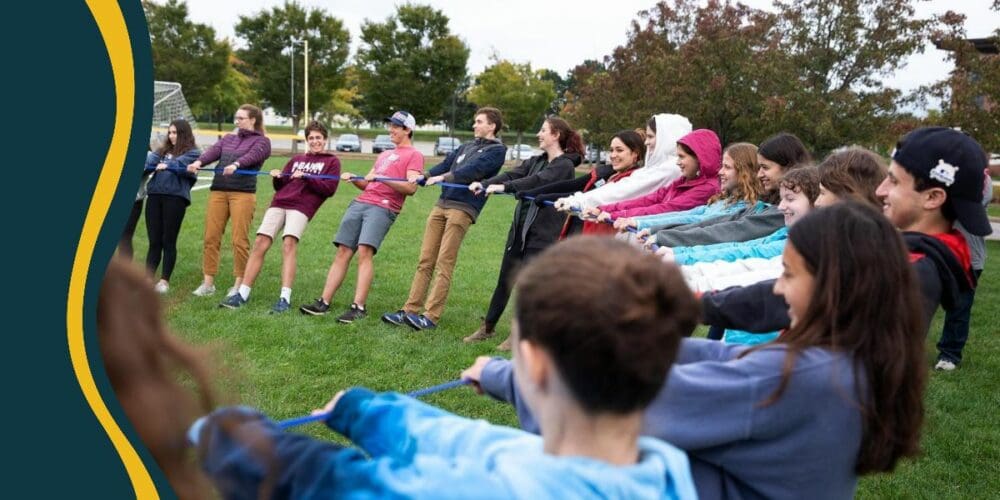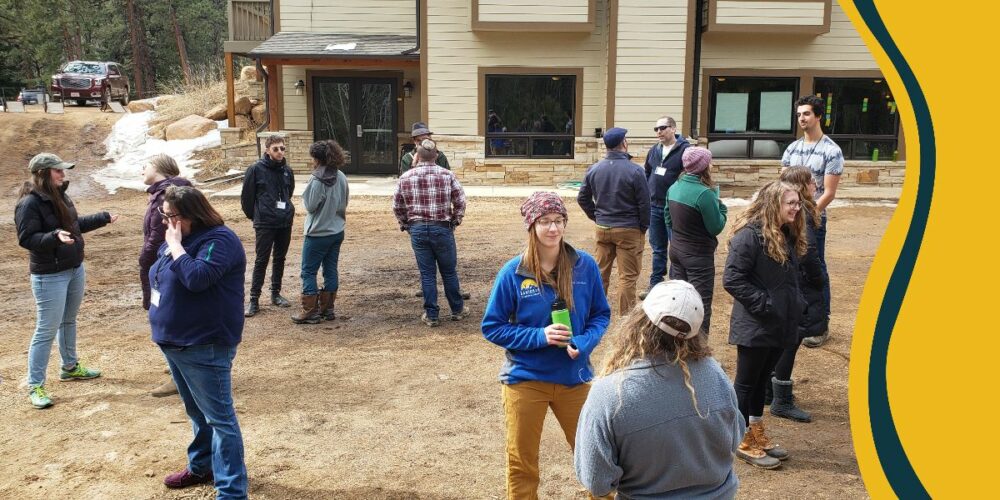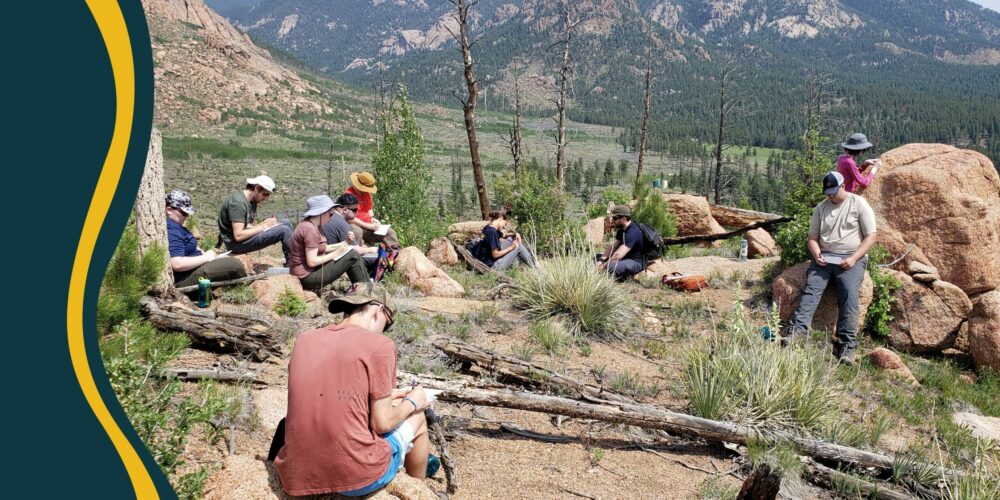This #GivingTuesday, will you help build a Jewish community that actively supports its members in cultivating mental health and wellness?
Almost 30% of young adults (18-25) and 17% of youth (6-17) struggle with mental illness (SAMHSA, 2019). The COVID-19 pandemic is exacerbating existing mental health challenges and our youth need support now more than ever. That’s why BaMidbar has expanded its focus, and in addition to wilderness-based treatment programs also offers mental health prevention and education programs.
2021 Program Highlights
PREVENTION
This fall, BaMidbar launched the Peer Wellness Fellowship in partnership with the Jewish Teen Initiative of Combined Jewish Philanthropies of Greater Boston and the Jewish Teen Education and Engagement Funder Collaborative. Adolescents experiencing mental health challenges are more likely to turn to peers for support than to reach out to an adult or professional. The Peer Wellness Fellowship, a cohort of JTI-Boston’s Peer Leadership Fellowship, leverages teens to increase awareness and decrease stigma around mental health in the Jewish community. Fellows are working to remove the stigmas surrounding mental health and wellness, educating themselves, their peers, and their community. During the nine-month program, Fellows engage in monthly training on mental health awareness, advocacy, wellness through a Jewish lens, and leadership development. Fellows will complete projects related to mental health awareness and stigma reduction. Through the program, Fellows will learn to articulate a connection between their Jewish identity, understanding of mental health, and sense of personal resilience.

Image: Teens standing in a circle leaning back while holding on to a rope for balance
EDUCATION
Informal educators, including Jewish community professionals, are oftentimes the first line of defense for a student struggling with mental health. These educators are uniquely situated to create positive environments where mental health can flourish. BaMidbar helps Jewish educators develop the knowledge and skills to build a resilient and thriving young Jewish community and to support those they serve who are struggling. Through professional development programs, BaMidbar hopes to effect systemic change by building a network of Jewish professionals who are equipped to recognize and address the mental health needs of their students, and can use Jewish educational experiences to support mental, emotional, and social growth.
In 2021, BaMidbar partnered with 35 organizations to offer 116 education programs reaching 2,749 participants. In partnership with Hillel International, BaMidbar piloted “Masterclass Wellness,” a semester-long intensive for 25 Hillel professionals looking to explore the ways wellness is embedded within Judaism, identify supportive factors to enhance student functioning, and build a toolkit to infuse resilience theory into Hillel facilitation, programming, and engagement. BaMidbar offered three cohorts of the Mental, Emotional, and Social Health for Experiential Educators (MESH-EE) program, a cohort-based program for Jewish educators. We had a 60 person waitlist for fall MESH-EE cohorts, and look forward to expanding MESH-EE capacity in Spring 2022 with additional virtual cohorts as well as in-person programs offered in Boston and Denver.

Image: Jewish educators stand in a circle engaging in one-on-one conversations
TREATMENT
After a year and a half of virtual programs, BaMidbar opened its doors and returned to in-person, wilderness therapy programming in June 2021. Over 40 days, students embarked on a journey of self-discovery, hope, and healing in the Colorado wilderness. Students explored questions of meaning, values, and purpose, built skills, practiced healthy emotional expression, climbed mountains, and built a strong, supportive, and inclusive community.
Students experienced profound growth over the course of their experience. To measure this growth, BaMidbar uses two clinically validated quantitative measures – the OQ(R)-45.2 (OQ), which measures functioning in symptoms of distress pertaining to depression and anxiety, interpersonal functioning, and social relationships, and the DASS-21, which measures symptoms of depression, anxiety, and stress. In 2021, BaMidbar students saw an average 27% reduction in OQ scores from program enrollment to graduation, which represents a transition from “moderately high” level symptoms into the “low” range of symptoms. Students’ DASS-21 scores demonstrate a 28% reduction in depression-related symptoms, a 30% reduction in anxiety-related symptoms, and a 42% reduction in overall stress-related symptoms. Do you know a young adult (18-28) who could benefit from BaMidbar’s wilderness therapy programs? Registration opens for Summer 2022 Programs on January 3, 2022!

Image: Young adult students sit on a hilltop writing in their journals
This #GivingTuesday, will you help us further our mission? Support BaMidbar today to help us address mental health in the Jewish community through the lens of prevention, education, and treatment. We can’t do this work without you!
With gratitude,
Jory Hanselman Mayschak, CEO

